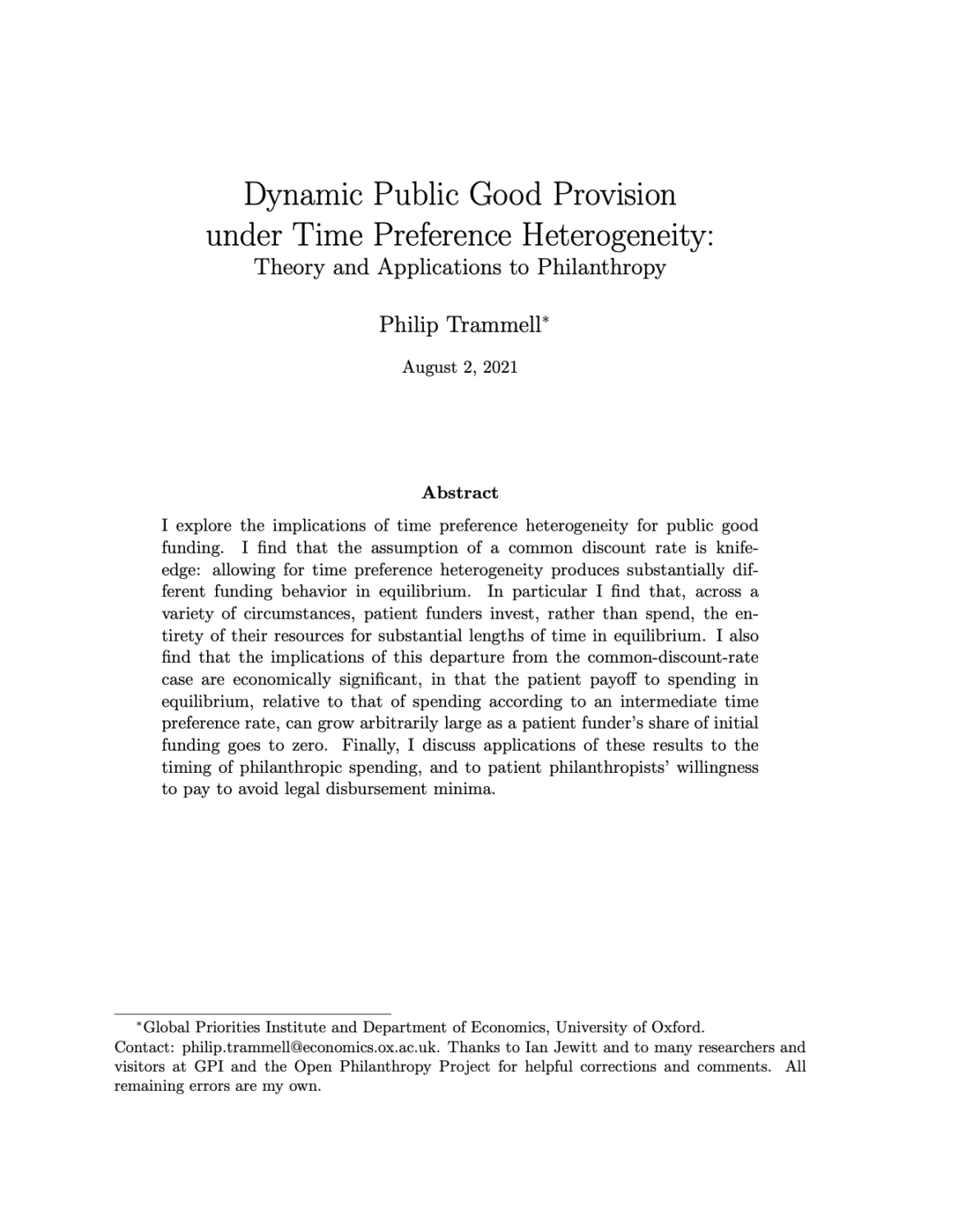Dynamic public good provision under time preference heterogeneity: theory and applications to philanthropy
Philip Trammell (Global Priorities Institute and Department of Economics, University of Oxford)
GPI Working Paper No. 9-2021
I explore the implications of time preference heterogeneity for public good funding. I find that the assumption of a common discount rate is knife-edge: allowing for time preference heterogeneity produces substantially different funding behavior in equilibrium. In particular I find that, across a variety of circumstances, patient funders invest, rather than spend, the entirety of their resources for substantial lengths of time in equilibrium. I also find that the implications of this departure from the common-discount-rate case are economically significant, in that the patient payoff to spending in equilibrium, relative to that of spending according to an intermediate time preference rate, can grow arbitrarily large as a patient funder’s share of initial funding goes to zero. Finally, I discuss applications of these results to the timing of philanthropic spending, and to patient philanthropists’ willingness to pay to avoid legal disbursement minima.
Other working papers
Evolutionary debunking and value alignment – Michael T. Dale (Hampden-Sydney College) and Bradford Saad (Global Priorities Institute, University of Oxford)
This paper examines the bearing of evolutionary debunking arguments—which use the evolutionary origins of values to challenge their epistemic credentials—on the alignment problem, i.e. the problem of ensuring that highly capable AI systems are properly aligned with values. Since evolutionary debunking arguments are among the best empirically-motivated arguments that recommend changes in values, it is unsurprising that they are relevant to the alignment problem. However, how evolutionary debunking arguments…
- « Previous
- 1
- …
- 27
- 28
- 29

